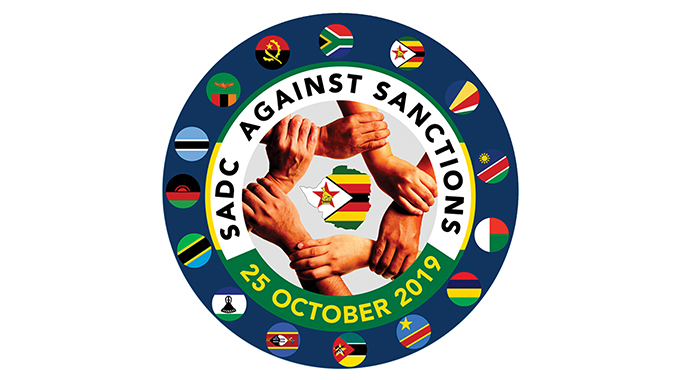‘With hardworking youths, Zimbabwe will conquer sanctions’

Peter Matika, [email protected]
IT has always been his dream to establish a thriving horticultural project that would benefit not only himself but the greater community in his Makwakwa Village, Mangwe District in Matabeleland South.
Having acquired an education both in Zimbabwe and South Africa, where he majored in agriculture at university level, Mr Sobala Ncube (43), said he never lost sight of the dream.
While he spends some time in South Africa where he is into consultancy work, the entrepreneur says through solid dedication to the farming project at home, he has been able to make an exciting breakthrough.
Operating as Sumukwe Valley Projects, it did not take Mr Ncube long to entice the market as he is already supplying buyers in Plumtree, Gwanda, and Bulawayo and looks forward to exporting his various produce into the region.
He says his drive has been inspired by the Sekusile Makorokoro Horticulture Programme that was launched by President Mnangagwa in December 2021.
Like his counterpart, a smallholder farmer in Makorokoro, Mr Kuzalunga Ncube Mabuza, who replicated the Presidential scheme, Mr Ncube has also duplicated the model, which he says will propel the country’s economy to greater heights.
Speaking to Chronicle at his homestead in Bango Village in ward 10, Mr Ncube said he was inspired by the National Development Strategy 1 (NDS1), which he thoroughly studied, leading to the establishment of his Simukwe Valley Projects.
“This is a response to the Government’s call for industrialising rural areas. This fulfils the desires and pleas of His Excellency President Emmerson Mnangagwa who wished to see rural communities being industrialised for the betterment of the people and communities at large,” said Mr Ncube.
The transformation of rural and urban economies through enhanced food and nutrition, growing markets, and jobs using value chains, including the horticulture sector, are critical for Zimbabwe’s development.

SADC against sanctions
“Zimbabwe visualises an upper middle-class economy by 2030 and agriculture is critical in the attainment of that vision. It’s only through us as a nation and especially the youths to attain our national goals,” said Mr Ncube.
He said the Simukwe Valley Projects were meant to promote and accelerate rural industrialisation through innovative and sustainable ventures.
“We are accelerating rural industrialisation by investing in rural areas. Through such projects, we are able to create value addition in the agro-processing sector.
“So far, we are harnessing what we have and have established a vegetable drying project that will also contribute to stock feed,” said Mr Ncube.
He said his academic qualification in agriculture has come handy in running the project in line with the ideals of the NDS1 blueprint and hoped to see more diaspora community members investing in farming.
“We have all we want in our country, all we need to do is invest back and create opportunities for our people. Our prosperity lies in our hands and we are the masters of this country’s future,” said Mr Ncube.
Through this project, Mr Ncube said he employs 22 permanent workers and that during the planting and harvesting time he engaged more seasonal workers.
“This is a seasonal business and we presently have 22 permanent employees. It is during the planting and harvesting seasons that we seek to engage more people,” he said.
“So, through this, we also employ the elderly who are responsible for the menial jobs such as cutting of tomatoes and other vegetables for drying.”
Mr Ncube said the project was founded eight months ago and was only officially launched on Wednesday.
“Through determination and hard work, our country will be recognised once again as the breadbasket of the continent,” said Mr Ncube.
Focusing on the illegal sanctions imposed on the country, he said Zimbabwe will conquer and thrive as its economic transformation lies in agriculture.
“This is the time to prove that we are capable of providing for ourselves as a country. However, we need these sanctions to be removed so that we are able to trade with other countries. We hope that our pleas to the West are heard,” he said.
Southern Africa countries will provide solidarity to Zimbabwe on Wednesday to amplify the growing lobby for the unconditional removal of sanctions imposed on the country by the Western nations. President Mnangagwa will deliver a televised speech to market the day.

President Mnangagwa
Mr Ncube said through farming, he hopes to contribute significantly to the country’s economic growth. Zimbabwe has a vibrant agriculture economy with most of the country’s sectors being directly and indirectly linked to the farming sub-sector.
Matabeleland South Provincial Affairs and Devolution Minister, Dr Evelyn Ndlovu, who was represented by the permanent secretary Mrs Latiso Dlamini-Maseko said she was amazed at the rate of transformation of the rural area.
She said the project was astounding as in her last visit the area was mostly covered in dense bushes.
“I am impressed by the manner in which locals are embracing the Second Republic’s drive to reach an upper middle-income economy by 2030,” she said.
“The Presidential Horticulture Scheme has helped inspire youths, including those based in the diaspora to return and contribute to the country’s economic growth.
“Look at this young man, not many of his peers are focused in this manner. They would rather build mansions and live a life of partying, while also engaging in drugs. This is inspirational and we hope the youths that are here are able to emulate his actions,” said Mrs Dlamini-Maseko.










Comments